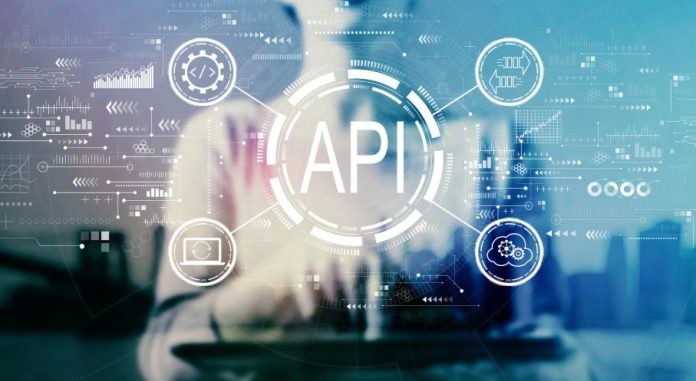Table of Contents
Businesses increasingly rely on automated data collection for competitive intelligence. Manual approaches waste 12-15 hours weekly per analyst with 30% error rates.
The need for efficient extraction has never been greater as digital interactions generate 2.5 quintillion bytes daily. A scraper API provides the ideal solution by handling complex tasks automatically – from JavaScript rendering to security bypassing – while reducing technical burden on development teams by up to 85%.
7 Signs Your Business Needs a Scraper API:
- Your team spends more than 5 hours weekly on manual data gathering
- Decision-making is delayed due to outdated market information
- Competitors consistently beat you to market opportunities
- Your data collection process can’t handle seasonal traffic spikes
- Developers are maintaining custom scrapers instead of building core features
- You’ve experienced legal concerns around web scraping practices
- Your international expansion requires localized data from multiple regions
Understanding Scraper APIs

A web scraper API serves as a sophisticated intermediary between your business applications and the vast ocean of online data.
Unlike traditional scraping methods that require extensive coding and infrastructure management, these APIs provide a streamlined approach to data extraction.
Think of it as having a dedicated team of digital assistants working around the clock to gather information with precision and reliability.
The modern web scraper API handles complex tasks automatically, from rendering JavaScript-heavy pages to managing sessions and bypassing security measures.
This automation significantly reduces the technical burden on development teams, allowing them to focus on utilizing the collected data rather than wrestling with extraction mechanics.
Essential Features That Matter
Modern scraper APIs distinguish themselves through several critical capabilities that streamline data collection workflows.
While traditional web scraping required extensive technical knowledge and resource investment, today’s solutions integrate sophisticated technologies that handle complexity behind user-friendly interfaces.
The following features represent the backbone of effective scraper API solutions that empower businesses to focus on insights rather than implementation details.
Automated Browser Management
At the heart of modern scraper APIs lies a powerful fleet of headless browsers. These invisible browsers render web pages just like regular browsers but operate without a graphical interface.
This approach ensures accurate data extraction from even the most complex websites while minimizing resource consumption.
As Shane Evans, CEO of a leading web scraping company, notes: “You can access browser functionality without needing to set up a lot of extra infrastructure.”
This capability proves invaluable when dealing with dynamic websites that rely heavily on JavaScript to display content.
AI-powered Extraction
Artificial intelligence has revolutionized data extraction processes. Modern scraper APIs leverage machine learning algorithms to understand web page structures and automatically identify relevant data patterns.
This technology eliminates the need for manual template creation and maintenance, significantly reducing development time and costs.
“Once we cracked a few big pieces, it became a compelling solution,” shares an industry expert, highlighting how AI integration has transformed web scraping from a complex technical challenge into an accessible business tool.
Advanced Session Handling
Professional scraper APIs excel in managing the intricate dance of web requests and responses. They automatically rotate IP addresses, handle CAPTCHAs, and maintain consistent sessions across multiple requests. This sophisticated approach ensures reliable data collection while respecting website access policies.
Choosing the Right Solution

When selecting a scraper API, businesses must evaluate several critical factors that directly impact their data collection success:
- Infrastructure requirements and scalability potential
- Data quality and format consistency
- Integration complexity and support availability
- Cost-effectiveness and resource optimization
- Compliance with data collection regulations
The right choice depends on your specific needs, but prioritize solutions offering comprehensive documentation, reliable support, and proven scalability capabilities.
Integration and Implementation
Implementing a scraper API involves more than just technical integration. Modern solutions offer multiple data delivery options, from direct API responses to automated exports to cloud storage services.
This flexibility ensures seamless integration with existing business workflows and data processing systems.
Many providers now offer specialized parsers for popular platforms like e-commerce sites and search engines, significantly reducing implementation time. These pre-built solutions handle common scenarios while allowing customization for specific needs.
Real-world Applications
The practical implementations of scraper APIs span across industries and use cases, demonstrating their versatility and impact.
Organizations leverage these solutions to transform their operations, gaining competitive advantages through timely, accurate data collection.
From strategic intelligence to operational optimization, scraper APIs have proven their value through measurable improvements in businesses’ data-driven initiatives.
The following examples illustrate how companies deploy these technologies to solve specific challenges and achieve quantifiable results.
Common use cases
The versatility of scraper APIs enables numerous business applications. E-commerce companies use them to monitor competitor pricing and product availability.
Market research firms gather consumer sentiment data across social media platforms. Content aggregators compile news and articles from multiple sources, maintaining fresh and relevant information feeds.
Implementation Benefits

Organizations implementing scraper APIs report significant improvements in their data collection processes.
A mid-sized e-commerce company reduced their data collection costs by 60% while increasing accuracy to 99.9%. Another firm scaled their market research operations from monitoring 100 websites to over 10,000 without adding technical staff.
5 Emerging Trends in Web Scraper API Technology:
- Natural language interfaces allowing non-technical users to request specific data using plain language queries
- Privacy-preserving scraping techniques that comply with evolving regulations while maintaining data quality
- Edge computing integration reducing latency by processing data closer to its source
- Specialized industry-specific scraper APIs optimized for healthcare, finance, and real estate data structures
- Predictive maintenance features that anticipate website structure changes before they disrupt data collection
Conclusion
Web scraper APIs have transformed data collection from a technical challenge into a strategic business advantage.
As data needs continue to grow, these solutions provide the scalability, reliability, and efficiency necessary for modern business operations.
Whether you’re monitoring market trends, tracking competitor activities, or aggregating content, a well-chosen scraper API can significantly enhance your data extraction workflows.


